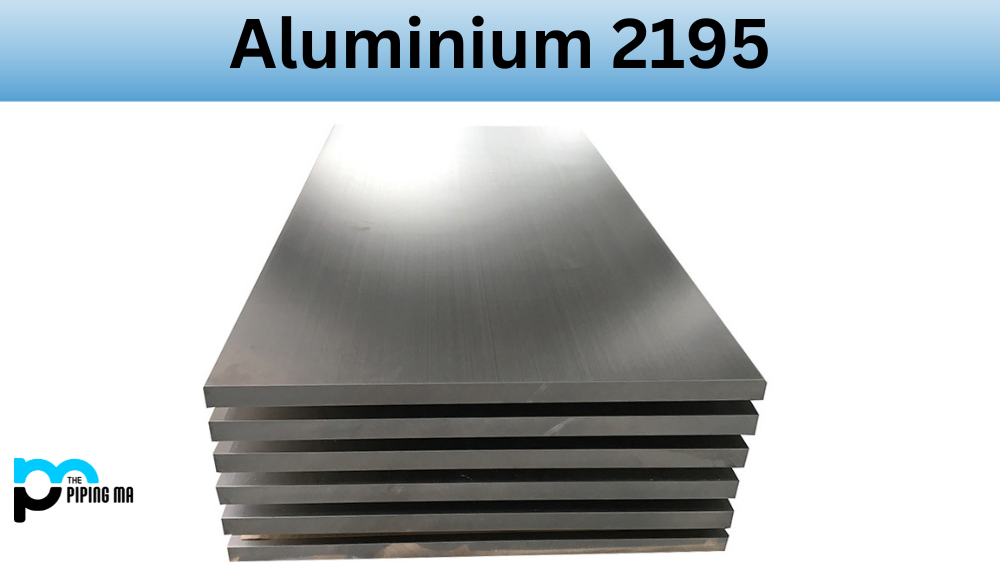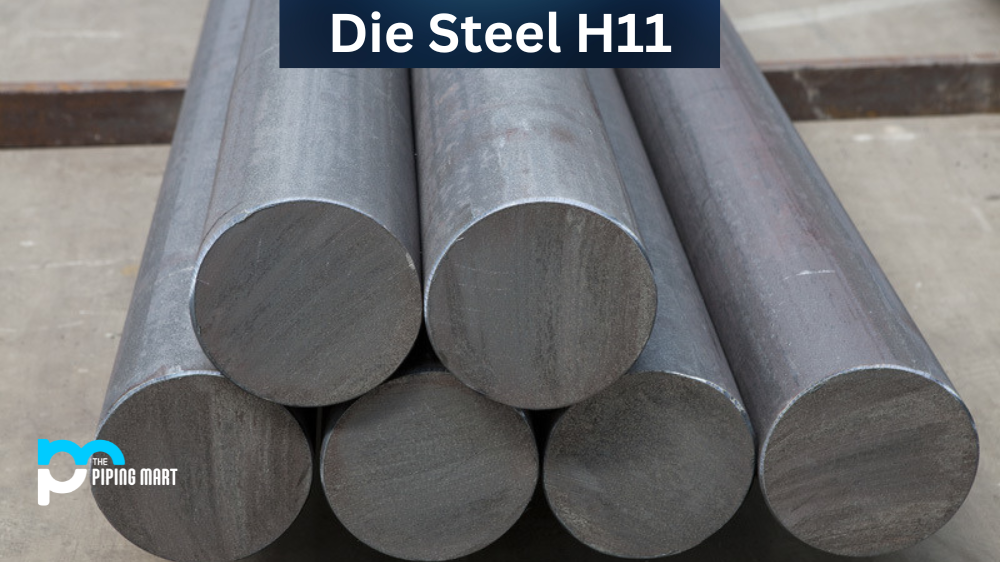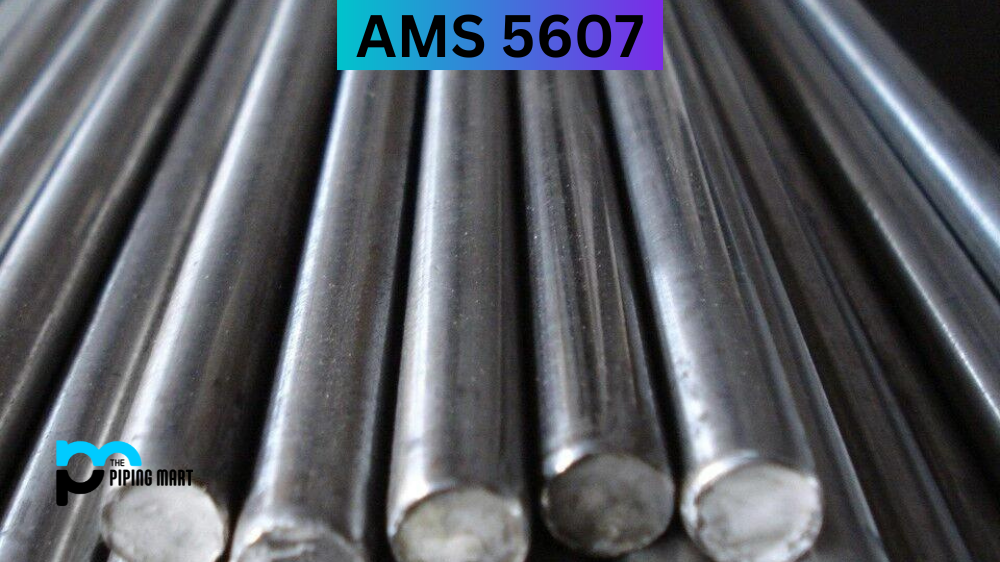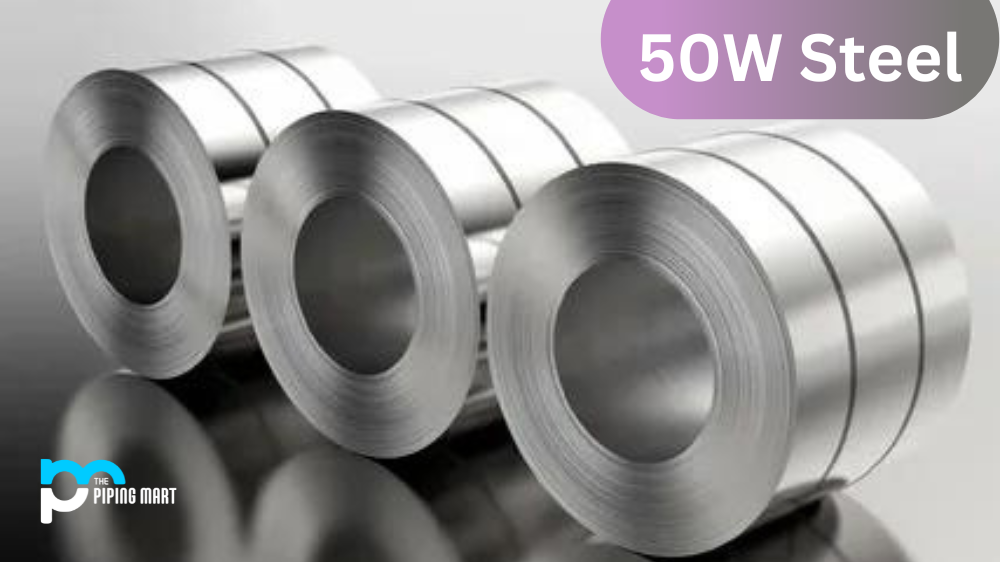Aluminium alloy 2195 is a high-strength aluminium with excellent corrosion resistance and heat treatment properties. This alloy is the best commercially available choice for applications requiring high strength, weldability, and good formability. It is also resistant to stress corrosion cracking and other forms of corrosion in many environments. This blog post will look closely at the composition, chemical properties, mechanical properties, physical properties, uses corrosion resistance, heat resistance, heat treatment process and machining, and welding of aluminium alloy 2195.
2195 Aluminium Alloy Composition
AL 2195 consists of copper (2.7%), manganese (0.8%), iron (1.2%), silicon (0.6%), zinc (0.6%) and titanium (1%). It also contains trace amounts of other elements, such as chromium and lead, in small amounts (< 0.05%).
| Item# | Al | Li | Cu | Mg | Zr | Ag | Zn | Mn | Others |
| 2195 | Bal. | 0.8-1.2 | 3.7-4.3 | 0.25-0.8 | 0.14 | 2.25-0.6 | <0.25 | <0.25 | Ti<0.1 |
2195 Aluminium Alloy Chemical Properties
The chemical formula for 2195-T8 is AlMnFeSiTiCuZnPbCrNiMoNbVAl2O3, where Al stands for aluminium and Mg stands for magnesium. The chemical composition of this alloy is listed below in weight per cent based on the total mass of the alloy: Copper (Cu) – 2.5 – 3%; Manganese (Mn) – 0.5 – 1%; Iron (Fe) – 0.2 – 1%; Silicon (Si) – 0.4 – 1%; Titanium (Ti) – 0.1 – 0.8%; Zinc (Zn) – 0 .3-0 .5; Lead (Pb) – < 0 .025; Chromium (Cr) – < 0 .05; Nickel(Ni)-<0 .05; Molybdenum(Mo)-<0 .02; Vanadium(V)-<0 .03; Aluminum(Al)-balance; Oxygen(O)-Balance.
2195 Aluminium Alloy Mechanical Properties
The tensile strength of grade 2195 ranges from 310 MPa to 470 MPa depending on its temperature, while its yield strength ranges from 290 MPa to 430 MPa at room temperature with an elongation range of 7% to 12%. It has an ultimate shear strength ranging from 75 MPa to 200 MPa depending on its temper condition. In contrast, its hardness ranges from 95 HV to 160 HV depending on its temper condition and an impact toughness ranging between 100 J/m² to 150 J/m² depending on its temper condition. Its fracture toughness ranges between 30 MN m-2/3to 40 MN m-2/3depending on its temper condition, too, before it undergoes brittle fracture at temperatures lower than -80°C (-110°F).
|
Item# |
E/Gpa |
Rm/Mpa |
Rpo2/Mpa |
A/% |
r/g cm-3 |
|
2195 |
76 |
586 |
548 |
8.4 |
2.72 |
2195 Aluminium Alloy Physical Properties
Alloy 2195 is an age-hardenable, high-strength aluminium alloy with superior corrosion resistance and weldability. It possesses a good combination of strength, formability, and machinability. When exposed to elevated temperatures, it retains its properties even during welding. Through ageing, it achieves excellent mechanical properties that make this alloy one of the most potent commercial alloys available in the market today. The high strength characteristics of Aluminium 2195 provide students, manufacturers, and engineers great versatility in their projects. Its enhanced adaptability makes it ideal for structural components such as strategic aerospace components, ship hulls, pipelines, and transportation industries.
| Physical Properties | Metric | English | Comments |
|---|---|---|---|
| Density | 2.71 g/cc | 0.0979 lb/in³ | AA; Typica |
Corrosion Resistance
Aluminium 2195 alloy is widely renowned for its excellent corrosion resistance, making it an ideal choice in applications where the material will be exposed to harsh environments. Aluminium 2195 has superior stress-corrosion cracking and pitting performance compared to other aluminium alloys, even in seawater and chlorides. This combination of strong mechanical properties and high chemical resistance makes it ideally suited for aerospace components, railings and structures that require durable performance in extreme operating conditions.
Heat Resistance
The impressive heat resistance of aluminium alloy 2195 makes it an invaluable component for several manufacturing processes. The metal’s unique composition means it can resist heat up to 520°C, making it ideal for brazing, soldering and welding. On top of its impressive melting point, the alloy also boasts exceptional fatigue and stress corrosion cracking resistance and good ductility and formability. Aluminium 2195 is a powerful addition for any manufacturer looking for a dependable and resilient metal that can withstand high temperatures.
Heat Treatment
Heat-treating aluminium alloy 2195 provides many benefits that make it one of the most desirable materials for various applications. The process of solutionizing, which involves heating and cooling the alloy in a precise and controlled manner, increases its strength and hardness and makes it more corrosion-resistant. Additionally, this alloy has outstanding electrical resistance properties and can be used in circuits with intense alternating or direct currents without risk of deformation or loss of conductivity. That being said, heat treatment should always be monitored closely to ensure optimal performance.
Machining
Aluminium 2195 machining is a specialized field of metallurgy, providing precise and demanding results for those who utilize it. This highly corrosion-resistant alloy provides superior strength while ensuring lightweight fabrication. Delicate items such as shafts and gears can be produced with a very precise level of accuracy when 2195 aluminium is used. It also responds well to surface treatments to provide additional surface protection, making it an ideal option for many machining applications. When carried out professionally, aluminium 2195 machining ensures that high-level results are achieved each and every time products are created or modified.’
Welding
Aluminium 2195 welding is a unique and intricate process which requires skilled professionals. It involves a high-frequency alternating electric arc between the metals being welded; this creates a molten pool which cools quickly into its molten form after use. The arc helps create solid and durable joins on many types of metal. Still, it is particularly effective when welding Aluminium 2195 since the process increases the properties of the finished product. This makes it an ideal choice for commercial welding, aerospace component fabrication and potable water storage tanks. With its higher strength than that found in more common alloys such as 2024 or 6061, Aluminium 2195 welding has become increasingly popular and cost-effective in recent years.

Abhishek is a seasoned blogger and industry expert, sharing his insights and knowledge on various topics. With his research, Abhishek offers valuable insights and tips for professionals and enthusiasts. Follow him for expert advice on the latest trends and developments in the metal industry.




